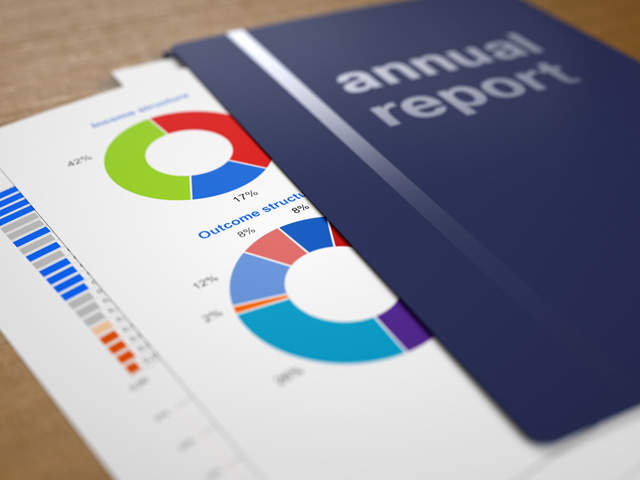Would do, was going to do... (B2)
Future in the past (425)
Vyjádření budoucnosti v minulém čase
Vyjádření budoucnosti v minulém čase – procvičování:
Na Landigo máme také lekce na budoucí čas (z pohledu přítomnosti):
Johnny said he would do bungee jumping with me, but then he changed his mind.
| Budoucnost v přítomném čase: |
He says he will do it.
|
| Budoucnost v minulém čase: |
He said he would do it.
|


O budoucnosti můžeme mluvit z pohledu přítomnosti nebo minulosti:
| Budoucnost v přítomném čase | Budoucnost v minulém čase |
|---|---|
|
I'm going to book the ticket.
|
I was going to book the ticket.
|
|
I know the flight will be delayed.
|
I knew the flight would be delayed.
|
Pro budoucnost z pohledu minulosti (future in the past) používáme obvykle dvě možnosti:
- Vazby s WAS/WERE:
I was going to book it.
Chtěl jsem si to zarezervovat. We were about to call you.Chystali jsme se ti zavolat. - WOULD:
I knew it would be late.
Věděl jsem, že bude mít zpoždění. They told us we would be waiting for a long time.Řekli nám, že budeme dlouho čekat.




I was about to jump in the water when I noticed a shark fin.
| Budoucnost v přítomném čase: |
I'm about to jump in.
|
|
I will jump in.
|
|
| Budoucnost v minulém čase: |
I was about to jump in.
|
|
I said I would jump in.
|


I was going to do, was to do, was about to do...
Porovnejte vazby se slovesem BE v přítomném a minulém čase:
| Budoucnost v přítomném čase | Budoucnost v minulém čase |
|---|---|
|
Don't worry. I'm going to get the tickets today.
|
I was going to get the tickets yesterday, but I totally forgot about it.
|
|
Have you heard that Alex is leaving for Germany soon?
|
The last time I met Alex, he was leaving for a new job in Berlin.
|
|
The discovery is to have a major effect on the treatment of leukemia.
|
Nobody expected that their discovery was to have a major effect on the treatment of leukemia.
|
|
Hurry up! The train is just about to leave!
|
We got on the train when it was just about to leave.
|
|
Are you okay? You look like you're on the verge of a meltdown.
|
You looked like you were on the verge of a meltdown.
|
Více o vazbách typu BE ABOUT TO a BE ON THE VERGE OF v lekci: Další způsoby vyjádření budoucnosti
Jason and Alicia were busy packing for their vacation. They were leaving the next day.
|
They're leaving tomorrow.
|
|
They were leaving the next day.
|


When Al found out Erica was going to have a baby, he was incredibly happy.
|
She is going to have a baby.
|
|
She was going to have a baby.
|


The plane was about to take off, so the stewardess helped me buckle up.
|
The plane is about to take off.
|
|
The plane was about to take off.
|


I would do, would be doing, would have done...
Porovnejte WILL a WOULD:
| Budoucnost v přítomném čase | Budoucnost v minulém čase |
|---|---|
|
Ben has nothing better to do. He'll go camping with his workmates.
|
Ben told his workmates he'd go camping with them.
|
|
I'll be playing golf again next week.
|
I never thought I'd be playing golf so often.
|
|
By the end of this month, Matt will have fixed the roof.
|
By the end of that month, Matt would have fixed the roof.
|
|
By the time we get to London, I'll have been driving for 15 hours.
|
By the time we got to London, I'd have been driving for 15 hours. That's why I insisted on spending the night in Amsterdam.
|
The customer support agent said he'd get in touch with me that day.
|
I'll get in touch with you today.
|
|
He said he'd get in touch with me that day.
|


Back then you were incredibly ambitious. Everybody expected you would be running your own café by the age of thirty.
|
They expect you will be running it.
|
|
They expected you would be running it.
|


I thought I'd have repaired the car by midday. Unfortunately, it took longer than I had anticipated.
|
I think I'll repair it by midday.
|
|
I thought I'd repair it by midday.
|


Děj se často nakonec neodehraje
Pokud mluvíme o budoucnosti v minulém čase, nemusí být vždy zřejmé, jestli se děj odehrál, nebo ne.
The man I had a date with was very late. I assumed he was going to stand me up.
|
I assumed he was going to stand me up. In the end, he didn't.
|
|
I assumed he was going to stand me up and he did.
|


Pomocí WAS GOING TO, WAS DUE TO, WAS SUPPOSED TO a WAS ABOUT TO často vyjadřujeme děj, který se nakonec neodehrál:
|
We were going to go cycling, but then it started to rain. (= We didn't go.)
|
|
I was going to propose to her yesterday, but she got angry with me so I didn't.
|
|
They were due to deliver the package earlier today. (= They didn't deliver it.)
|
|
You were supposed to check in with me before ordering anything. (= You didn't check in with me.)
|
|
He was just about to back out of the driveway when he noticed the hedgehog. (= He didn't back out.)
|
Why is that report still on your desk? You were due to send it to Mr. Austen on Wednesday, weren't you?
| Nestalo se: |
|
You were due to send it.
|
|
I was going to send it.
|
|
I was about to send it.
|


What's going on? You were supposed to be here an hour ago. Are you stuck in traffic or something?
| Nestalo se: |
|
You were supposed to be here an hour ago.
|


I was about to score a goal when a player from the other team brought me down.
| Nestalo se: |
|
I was about to score.
|


I was to do = děj se odehrál
I was to have done = děj se neodehrál
WAS TO + infinitiv (was to do, was to happen...) použijeme pro budoucí děj, který se odehrál:
|
The chauffeur who was to drive us to the airport arrived at our hotel on time. (= He drove us there.)
|
WAS TO HAVE + třetí tvar slovesa (was to have done, was to have happened...) použijeme pro budoucí děj, který se neodehrál:
|
The chauffeur who was to have driven us to the airport had an accident on his way to the hotel. (= He didn't drive us there.)
|
Vazby s WAS TO/WAS TO HAVE jsou poměrně formální. V hovorovější angličtině je běžnější např. WAS SUPPOSED TO nebo WAS GOING TO:
|
He was to have driven us there.
|
|
He was supposed to drive us there.
|
|
He was going to drive us there.
|
Since we were to pick strawberries, the children were really looking forward to that afternoon.
| Stalo se: |
We were to pick strawberries.
|
| Nestalo se: |
We were to have picked strawberries.
|


The concert was to have taken place later that day. Unfortunately, it was postponed.
| Nestalo se: |
It was to have taken place.
|
| Stalo se: |
It was to take place.
|


After learning about my wife's infidelities, I was supposed to file for divorce. In the end, I didn't.
| Nestalo se: |
|
I was supposed to file for it.
|
|
I was to have filed for it.
|


Vyjádření budoucnosti v minulém čase – shrnutí a tip na závěr:
- Budoucnost v minulosti → vazby s WAS/WERE (I was going to do, we were about to do...) nebo WOULD (I would do, we would have done...)
- WAS GOING/DUE/SUPPOSED/ABOUT TO DO → často se děj nakonec neodehrál
- WAS TO DO → děj se odehrál
- WAS TO HAVE DONE → děj se neodehrál
- Doporučujeme si procvičit vyjádření budoucnosti v minulém čase (future in the past) v našich cvičeních.
